Indigenous voice ‘from the people, it’s not mine’, says Anthony Albanese
Anthony Albanese signals any constitutional body for Aboriginal Australians would start with at least 20 people.
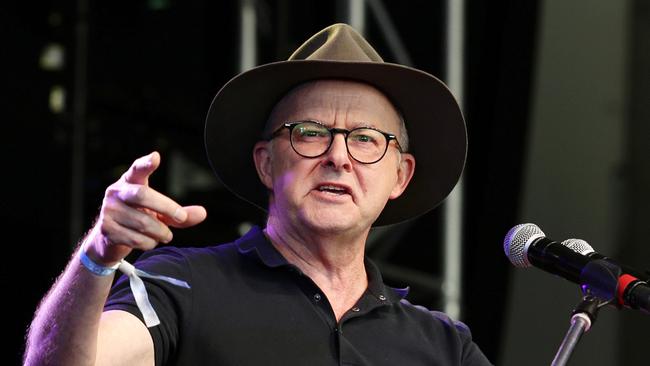
Anthony Albanese wants a model for an Indigenous voice to “come from below”, as he signals any constitutional body for Aboriginal Australians would start with at least 20 people sitting on it.
With a referendum due in the next 12 months on recognising Indigenous people in the Constitution, the Prime Minister says he will not be “prescriptive” about how the voice will be constructed.
“We’re not being prescriptive deliberately,” Mr Albanese told The Australian. “It’s not my model. I want people to engage on the model … I want this to come from below.”
Mr Albanese has declared the form the voice takes will “change over time”, as he battles to convince Australians less than a year out from the planned referendum that it is a “simple proposition”.
The Prime Minister said on Thursday the voice would consist of 10 women and 10 men, later saying the body would have “about 20” people.
The suggestion of a 20-person body is similar to that in the Indigenous voice co-design process final report, written by Marcia Langton and Tom Calma, which indicated the body could be made up of 24 members and with a gender balance.
Mr Albanese said opponents were making the proposition of a voice “more complex than it is”.
“There are two propositions here. One is we recognise that we live in and share this continent with the oldest continuous culture on Earth. That should be recognised in our Constitution,” he said on Nine’s Today show.
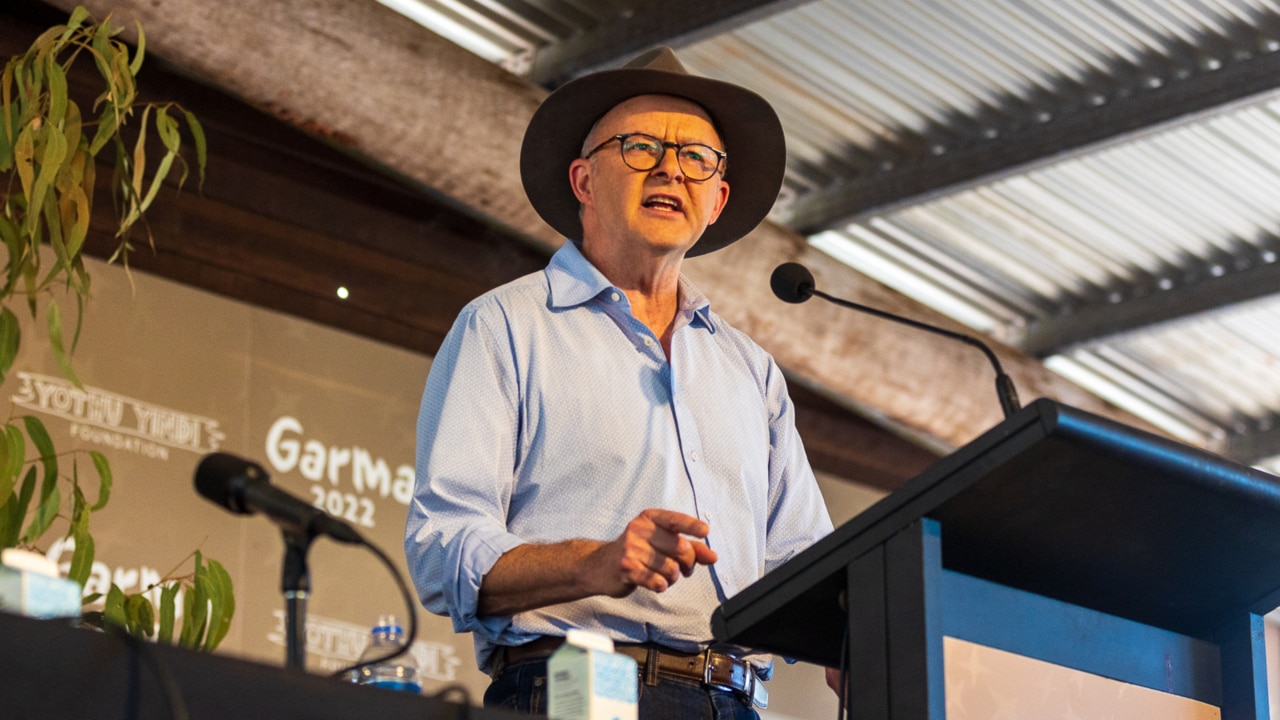
“The second thing is pretty simple – there should be a voice to parliament and that Aboriginal and Torres Strait Islander people would be consulted on matters that affect them: their education, their health, their housing, justice issues.
“That’s the simple proposition which is there, and that is subject to legislation that will change over time as to how many people are on the body or how many people are from the different regions.”
Constitutional law expert Anne Twomey said the voice could have “various kinds of manifestations throughout its existence”, and change in size and how it operated.
“You put the power in there (the Constitution) so that parliament can decide these things in the future, but no one can guarantee exactly what parliament is going to do,” she told The Australian. “How it (the voice) is comprised, what its size is, how it operates, all of those things are left to parliament.
“The proposed (constitutional) amendment that the Albanese government has put up has very much ensured that all those things are left to parliament and the democratic process to decide because you don’t want to freeze that sort of stuff in the Constitution, because then if something does go wrong, you can’t fix it.”
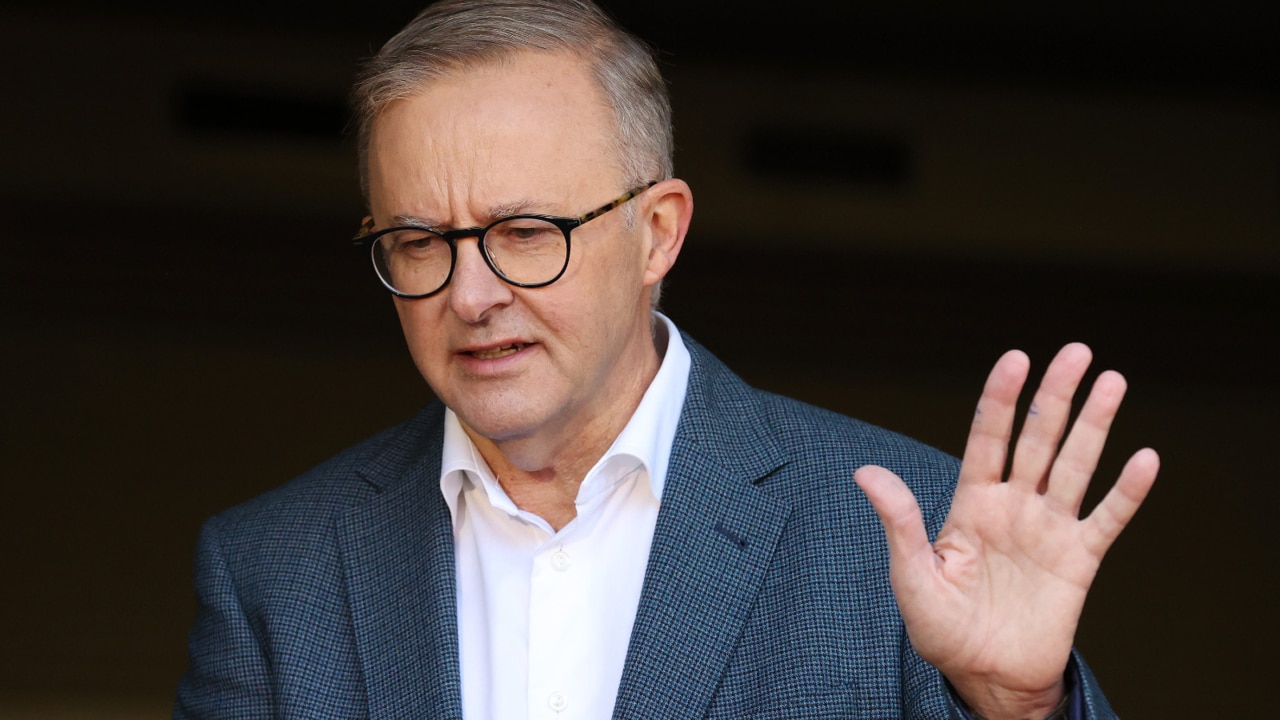
Mr Albanese said the argument there was a lack of detail in the proposed voice was “a misnomer” and the “simple proposition” was outlined in public documents such as the 200-plus-page Langton-Calma report.
However, he did clarify the areas on which the body would be consulted. “If there was a policy on support for Medicare, that’s for everyone, then that’s not about the voice,” he said.
“What would be about the voice is how do we close the gap in health, education, housing, justice outcomes (and) life expectancy.”
Mr Albanese said he still wanted Peter Dutton to “engage” on the voice, despite the Liberal leader reserving his party’s position until more detail was given.
It follows the Nationals in November declaring their opposition to the voice, which prompted the resignation of one of their MPs, Andrew Gee, who will now sit on the crossbench.
Mr Albanese said Australia had tried “other methods for 120 years” but there remained gaps between Indigenous and non-Indigenous Australians on educational outcomes, health outcomes, life expectancy, infant mortality and incarceration rates. “How about we give this a crack?” he said.


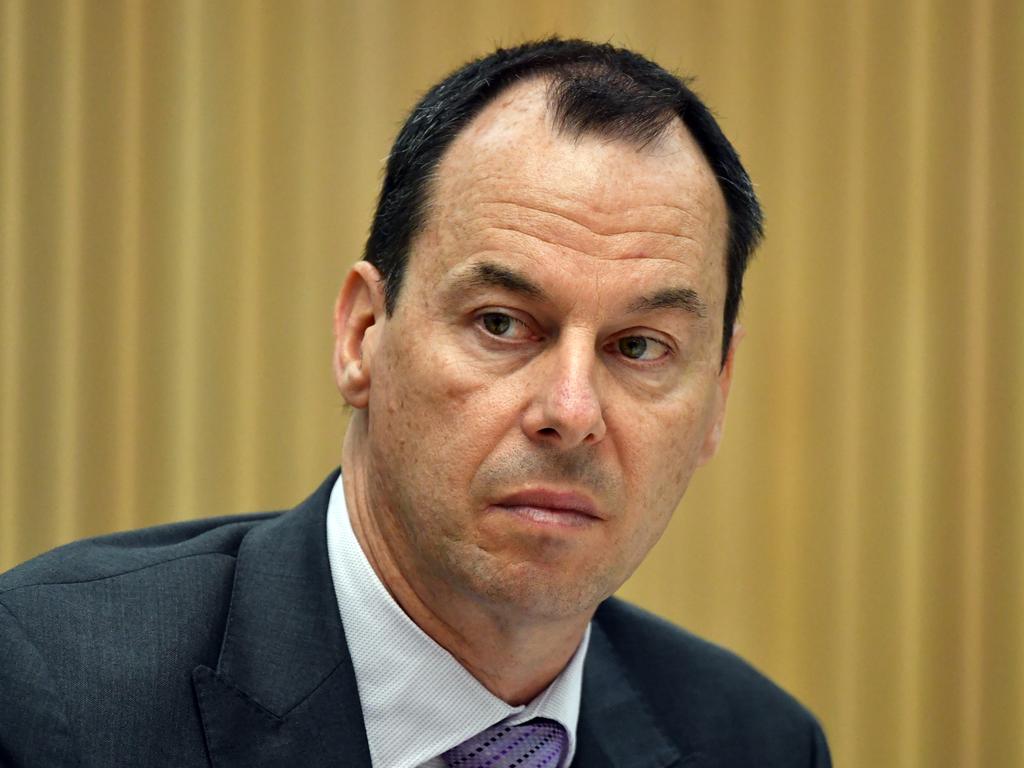
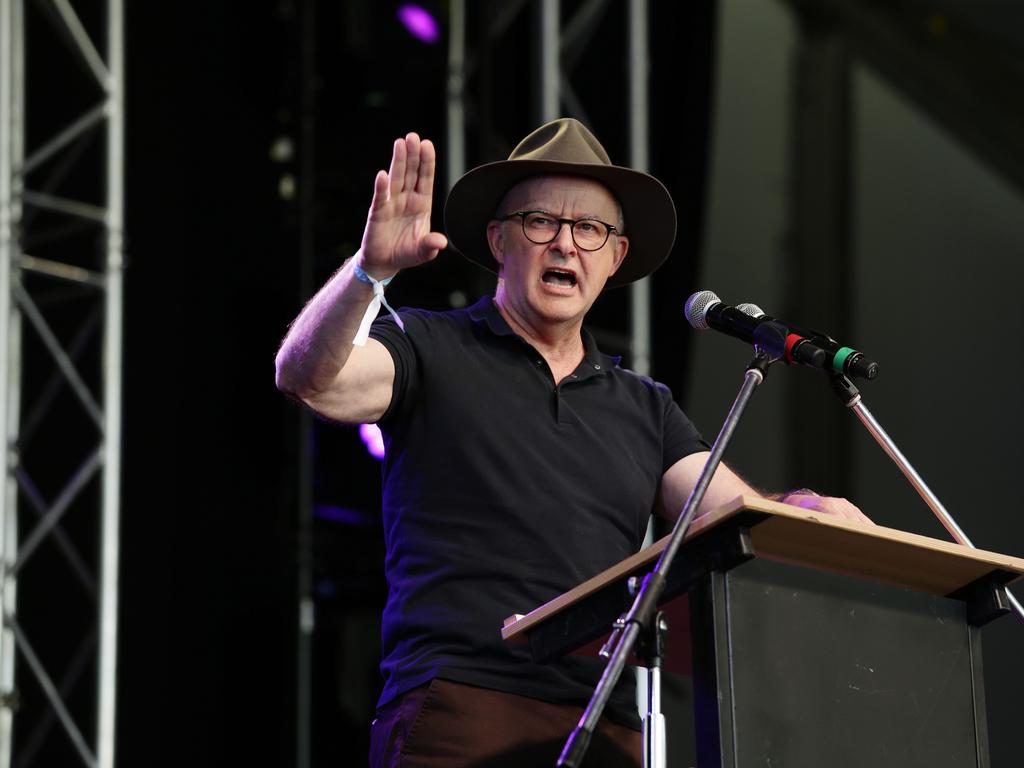


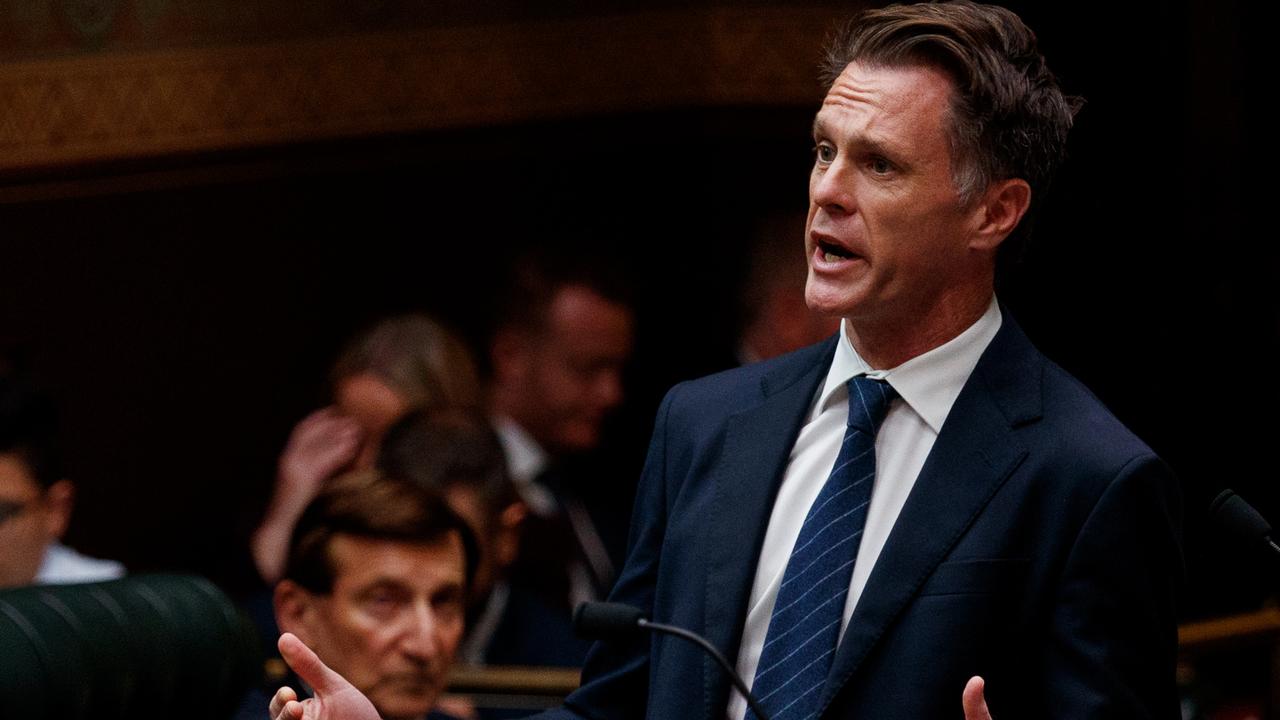
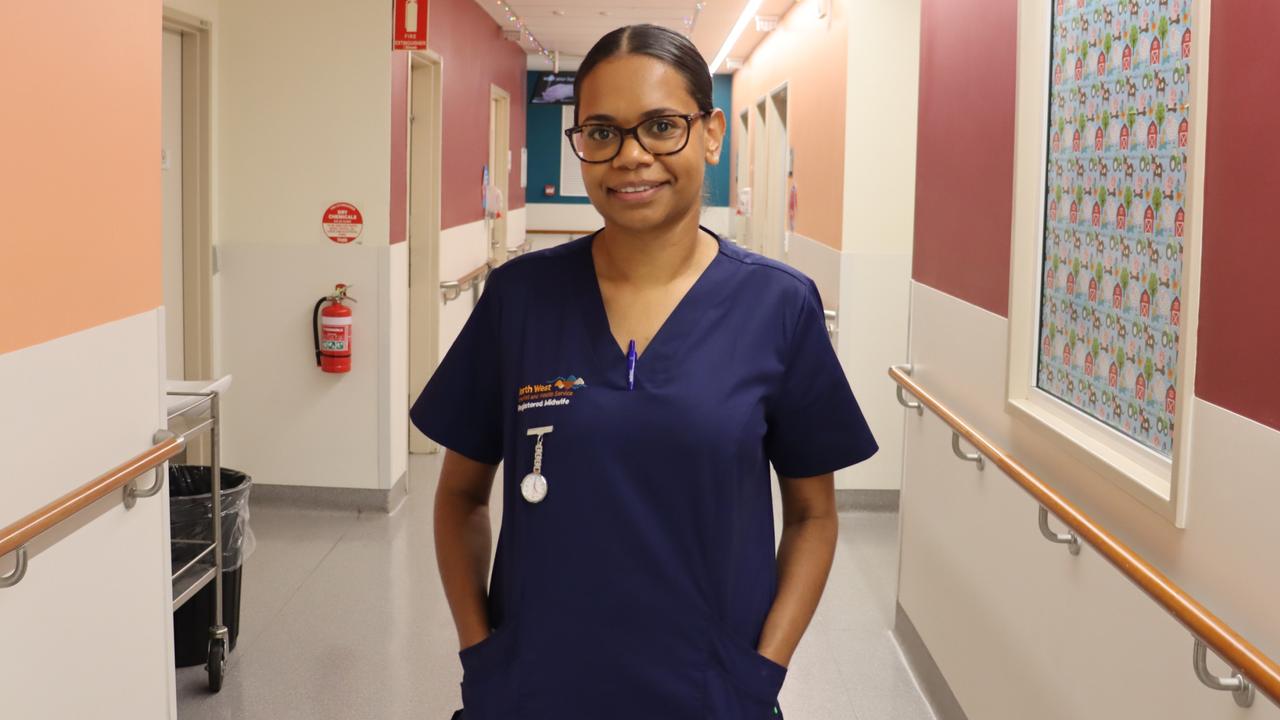
To join the conversation, please log in. Don't have an account? Register
Join the conversation, you are commenting as Logout